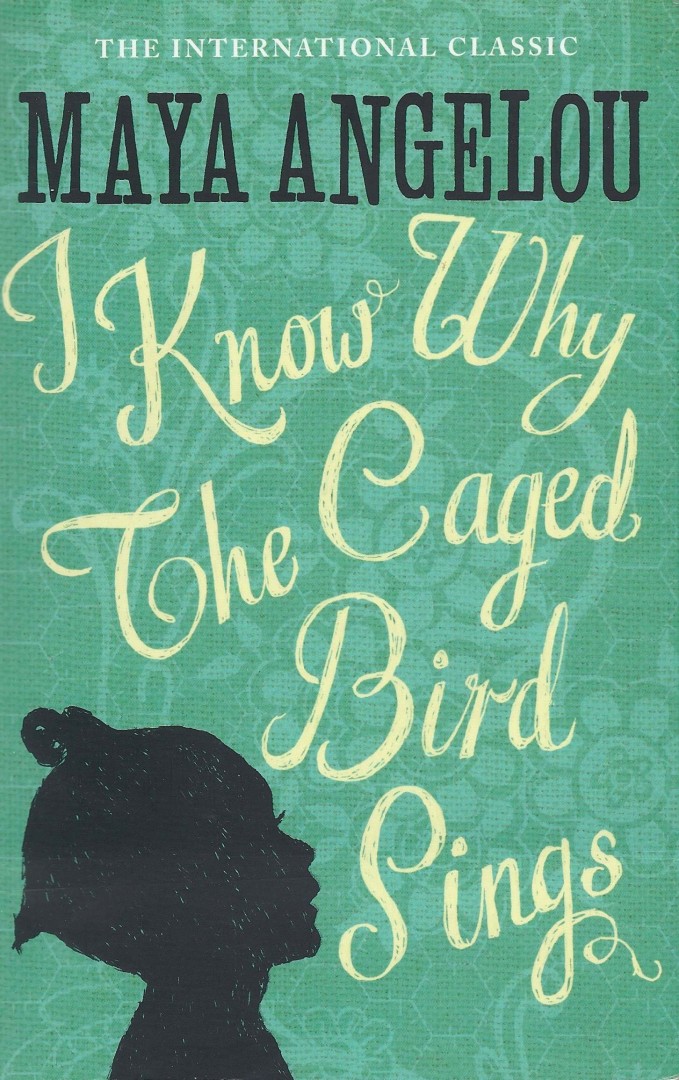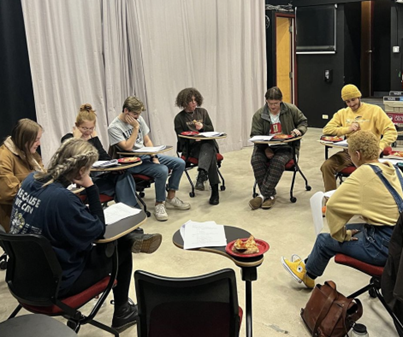As a well-known and highly revered writer, Maya Angelou was an inspiring public figure, speaking out against racism, sexism and injustice. Many people are probably familiar with her works of poetry or have heard of her ideas housed within her novels. “I Know Why the Caged Bird Sings” is her autobiography, inviting readers into her personal experiences while still speaking to issues of inequality.
The book begins with 3 year-old Marguerite, aka Maya, arriving in Stamps, Arkansas with her 4 year-old brother, Bailey. Their parents’ marriage had ended, so the children were sent to live in Stamps with their grandmother, whom they call Momma, and physically disabled Uncle Willie. Maya and Bailey were happy in Stamps, helping out in the General Merchandise Store owned by Momma until they were old enough to go to school.
It is here in Stamps that Maya is first confronted with race as she grows up and learns to live by the rules of the segregated South. On occasion, she is bitter and confused by actions of the whites, or the lack of reaction from the African-Americans. Maya is forced to understand racial implications when white schoolgirls approach the store to call out names and disrespect Momma, yet Momma does nothing but stand silently and gracefully in the face of cruel discrimination. It is also here that Maya begins to fall in love with literature, reading Shakespeare, Kipling, Poe, Butler, Du Bois and Hughes.
Everything suddenly changes when Maya’s mother shows up and brings the children to live with her in St. Louis. Not only does Maya have to adjust to living in a different town and with a different ‘mother’, but she also must face her mother’s boyfriend, Mr. Freeman, who develops an unhealthy interest in young Maya. After a short time spent in St. Louis, the children are again sent back to Stamps. Still, St. Louis changes Maya, and she spends years afterwards in absolute silence, speaking only with Bailey when required. Readers continue to follow Maya until age 16 as she moves, grows and gains knowledge of the world and all its facets.
Angelou’s autobiography is captivating; it gives readers insight into her background as a young black girl growing up in the segregated South. She tells her story of experiencing discrimination and mistreatment on multiple levels. Angelou allows readers to live and grow through the stories of her younger self, holding the reader’s attention and emotions the whole time. Her writing is masterful due in part to its ability to elicit empathy without severe pity, but also due to its soft-spoken yet strong tonality and lyrical language. The writing style grants Angelou the ability to include metaphors and complex themes, making her novel more than a typical autobiography. These additions create a multi-tiered story, giving Angelou’s background intertwined with ideas and lessons about challenge and humanity.
“I Know Why the Caged Bird Sings” is a touching story that inspires and teaches while also depicting the life of an influential and strong woman. Angelou’s writing is captivating, as it pulls readers in and holds them within the clutches of overcoming oppression, self-discovery and dynamic life choices. Angelou’s death just last May presents the idea that current U.S. society is less than a lifetime away from blatant racial segregation and injustice. Her writings are an emotional reminder of the progress that has been made, but they are also relevant commentary on current problems that have yet to be resolved.











